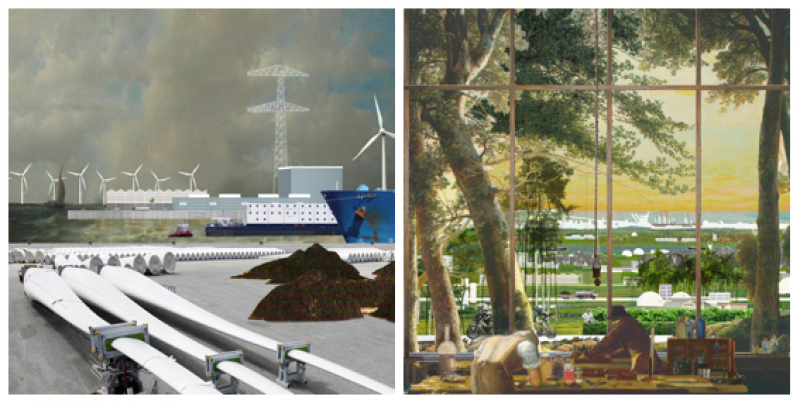The Paris climate agreement calls for strong resolutions. Given the track record of the Dutch in the field of sustainable energy, a change of course is unavoidable. What various national and regional surveys also make clear is that spatial changes that follow from the energy transition will affect everyone, and everywhere. The energy transition is more than infrastructure, and perhaps the most important question is what new urban quality the energy transition will enable us to produce. We have to make use of all the knowledge and expertise that is available to purposely elaborate the consequences in order to prevent further delays as well as come up with the best possible solutions.
Energy=Space=Solidarity
On the initiative of the Vereniging Deltametropool (Deltametropole Association), together with the professional sector, the Plea 2050 was formulated, advocating the development of a ‘Delta Plan for the Energy Transition’ in which the spatial and social impact and the energy transition can be duly considered and consciously instigated.
The core message of the Plea is: no energy transition without spatial (re)design. Energy=Space=Solidarity. A national program is essential to safeguard the spatial and societal impact of the energy transition, and it must be formulated in interaction with regional strategies.
You can download the Plea 2050 here

IABR–Atelier Groningen
Image: maat ontwerpers
Design and energy transition
The platform of the IABR is fully used during the biennale to firmly anchor design in the energy transition. That is why on 3 July the Plea 2050 will be presented to Ed Nijpels – chairman of the Climate Council and also, among other things, chairman of the Board of Supervisors of the IABR.
On 3 July questions will be discussed such as: What shape might a national program for the energy transition take? What is needed to anchor the spatial and social impact of the energy transition in the best possible way? What new urban quality does the energy transition enable us to produce? And how can we ensure that the design world plays a role in addressing the current ‘missing link’ between the ‘what’ and the ‘how’ of the energy transition?
During the debate we will also explore the analogy with similar programs in which spatial quality and a national approach go hand in hand, such as the Delta Program and Room for the River.
location: HAKA Building
date: July 3
time: 7:30 - 9:30 pm (doors open 7:00 pm)
language: Dutch
